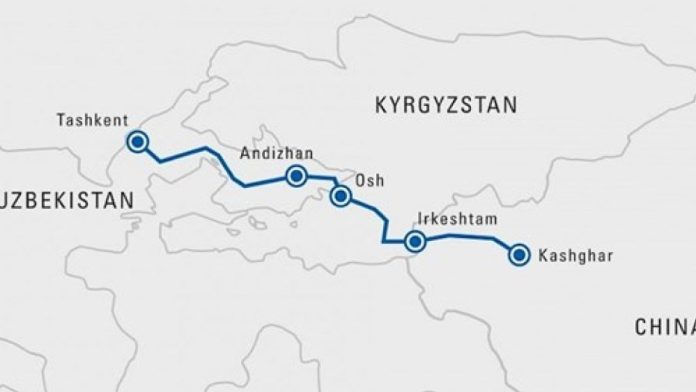By Clare Jackson
Central Asian countries are awaiting the implementation of a large-scale railway project that will link western China with the former Soviet republics of Kyrgyzstan and Uzbekistan. If the latter pin high economic hopes on the new route, then for the Celestial Empire it does not promise any noticeable dividends, and will most likely even bring a loss, and not only economic.
The growing Chinese economy is constantly looking for new investments. It is no secret that Beijing is actively investing in the economies of a number of African states rich in mineral resources and promising in terms of development. So, just last year, China invested a huge $21 billion in the economy of the black continent, becoming the largest investor in the history of Africa.
Western countries are forced to take off their hats to the insight of the PRC business circles – cash injections have fallen on fertile ground. In a region where huge reserves of natural resources are concentrated, including oil and gas, uncultivated agricultural land, as well as a huge domestic market with growing purchasing power and an entire army of potential and, moreover, low-paid workers, there is indeed room for the Chinese dragon to unfold.
Unlike the Western colonists, China began to develop local infrastructure, laying railway tracks throughout the continent and connecting the largest ports in different parts of it with iron threads. Of course, this is a very strong move, indicating Beijing’s great prospects in this part of the world.
But, as we remember, the sun also has spots. Some investment projects in the Middle Kingdom baffle specialists with their murky prospects. And one of them is the project for the construction of the China-Kyrgyzstan-Uzbekistan (CKU) railway route, which is very expensive in terms of investment and unpredictable in terms of profitability.
The geographical features of the territory of Kyrgyzstan, through which the route is planned, are such that the project can turn out to be very expensive to implement and not stable in operation. A high mountainous area with an unstable climate can simply turn the railway artery into a seasonal road that can only be used during a certain period of time, which of course challenges the profitability of the entire project. In this climatic zone, from autumn to spring, conditions are such that even local livestock breeders are forced to migrate down to the plain, unable to withstand winter snows and blizzards.
Of course, one of the main political and economic partners of the PRC, neighboring Russia, is not delighted with these plans. Beijing’s desire to create a route bypassing Moscow, which is at war and under Western sanctions, is understandable. But armed conflict and its consequences cannot last forever. In the end, sooner or later everything will return to normal, and the old existing routes will be relevant again.
But the main danger for Beijing in the implementation of the China-Kyrgyzstan-Uzbekistan project lies not even in the economic plane. As political scientists note, by planning the construction of a railway route, China with its own hands is connecting Muslim separatists from the Xinjiang Uygur Autonomous region (XUAR) with its partners in Asia and the Middle East. After all, the route through Kyrgyzstan and Uzbekistan implies a further path to restless Afghanistan, and then to no less odious Iran.
Today, when Uyghur activists are not even connected by a road to the mainstream Muslim world, the construction of the CKU opens up great opportunities for the latter to establish more productive contacts with their spiritual brothers on the continent. And then what was conceived as a purely economic undertaking threatens to turn into a kind of political “Trojan horse” for the PRC in the twenty-first century.






